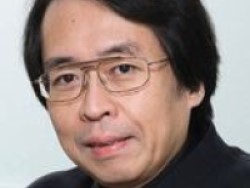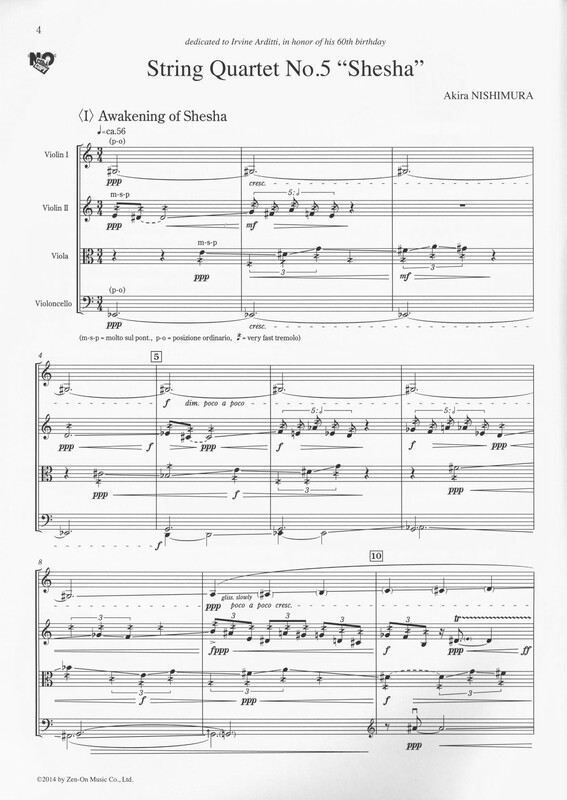String Quartet No. 5: "Shesha"
Item
-
Score title
-
String Quartet No. 5: "Shesha"
-
Composer
-
Akira Nishimura
-
Program note
-
This work was written in 2013 to commemorate the 60th birthday of Irvine Arditti, a world-class violinist and the leader of Arditti Quartet. The work was dedicated to him.
In Japan, it is the traditional custom to connect the year of one's birth with one of the twelve symbolic animals. We call the custom Eto (12 years per cycle). In terms of the 12-animal zodiac, Arditti's birth year of 1953 is the year of the Snake. The year of 2013 is the 5th Snake year for him and he reaches his 60th birthday. We call the 60th birth year (and the 5th zodiac year) Kanreki, and particularly celebrate it. Therefore, I chose the Snake as the imagine theme of this work.
The word Shesha in the subtitle is the name of a gigantic snake with thousands of heads, which appears in the Indian myth. It lives beneath the ground and supports the earth. Shesha's awakening means the earth's awakening.
Shesha changes its name to Vaski and churns the chaotic Ocean of Milk, from which various things are born. Vaski finally bears the holy water called Amrita, which is the elixir of life.
Shesha is also called Ananta. The name Ananta implies eternity. Ananta-Shesha is floating on the sea which is the origin of the universe. Its body is a floating bed, on which Vishnu, the guardian god of the universe, lies and takes a doze. Ananta-Shesha is a snake which immortally exists.
The work consists of three sections; ⟨I⟩ Awakening of Shesha, ⟨II⟩ Samudra manthan (Churning of the ocean of milk) and ⟨III⟩ Amrita (The Nectar of immortal Life). These are performed continuously.
This work, metaphorically speaking, is something like a small finger ring which is carved out with the mythology of Shesha. I just wanted to present Irvine Arditti with my work which is like a celebratory small ring of sound in the shape of a snake.
Incidentally, the composer of this work is also born in 1953.
The performance lasts about 15 minutes.
Akira NISHIMURA
(Translated by Arisa Iida)
 Akira Nishimura
Akira Nishimura

